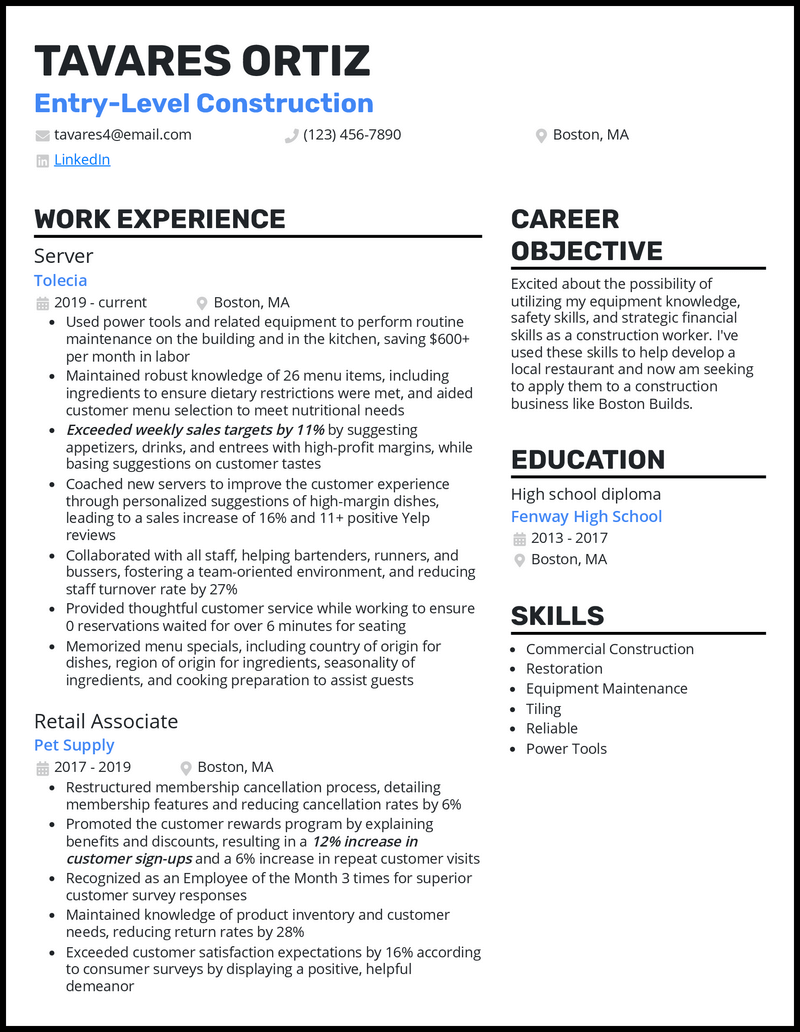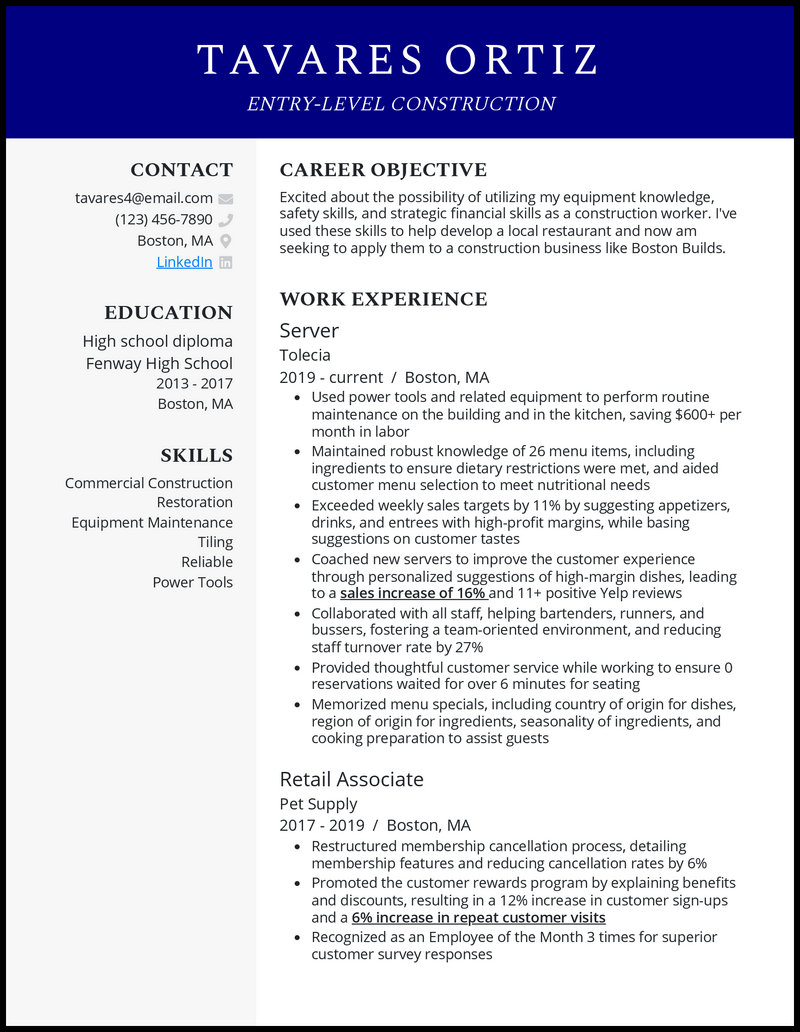

Your job as an entry-level construction worker provides essential support to those around you. By carrying materials, setting up equipment, cleaning work areas, and assisting others in complex tasks, you help make sure the project progresses on schedule.
It can be difficult to avoid understating or overstating your skills and experience when starting out. Striking a balance that communicates your hard work, commitment, progress, and future potential isn’t easy to achieve and requires a well-organized resume template.
That’s where our entry-level construction resume examples come into play. They’re designed to shine a light on your potential—use them to jumpstart your career!




For experienced workers, there are a lot of basic skills that employers will assume you have even if you don’t explicitly mention them, be it using AutoCAD or basic carpentry. For junior workers like yourself, however, no one knows what you’ve learned so far and what you haven’t.
That’s why it’s best to be specific and cover all the bases, so recruiters know exactly what you can do. At the same time, it’s important to include the specific skills mentioned in the job description you’re applying to.
Highlight abilities that show your physical fitness as well as your knowledge of construction and any mandatory safety regulations. The more you can zone in on your unique abilities, the higher the chance that you’ll be able to stand out among other applicants.
When written well, your work experience section can cover multiple jobs simultaneously. You can use it to showcase knowledge about the construction project lifecycle, safety procedures, and budgeting best practices.
As an entry-level worker, it’s especially useful for you to hit all these points and prove your qualifications to take on the job.
The key is to focus on your accomplishments and the impact you’ve had in your previous roles. To make your work experience stand out even more, make sure to include some numbers, stats, and figures to further expand on your achievements.
After all, saying that you “loaded and unloaded over 5,000 lbs of materials per week” sounds far more impressive than just saying that you “carried materials.”
Here are a few examples:
Volunteer work, helping out with a family construction business, short courses, internships—anything you can think of. It shows that you’re committed to your new career and getting involved in various different ways.
Creating a cover letter can benefit your application, but it always needs to be custom-made for the specific job you’re applying for. Use it as an extension of your resume and elaborate on your knowledge of construction.
How long should my resume be?As an entry-level construction worker, your resume should definitely fit on a single page. This is what looks most professional and concise, and it will make sure your resume doesn’t look empty. A one-page resume fills up in no time at all.